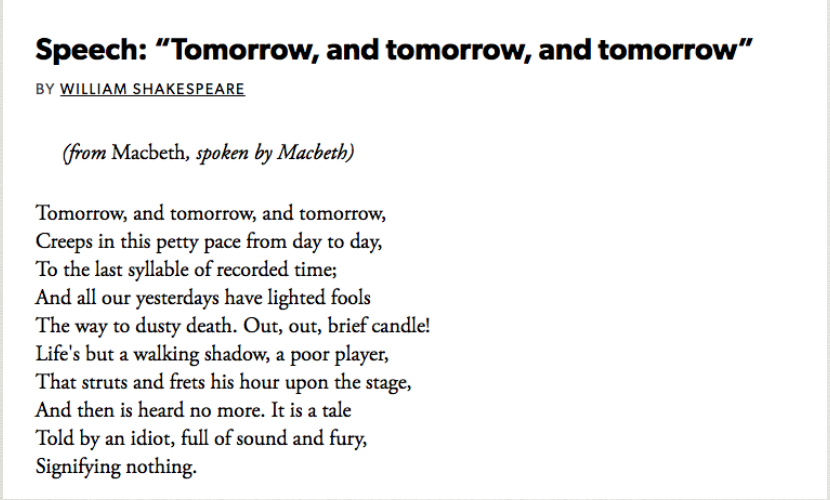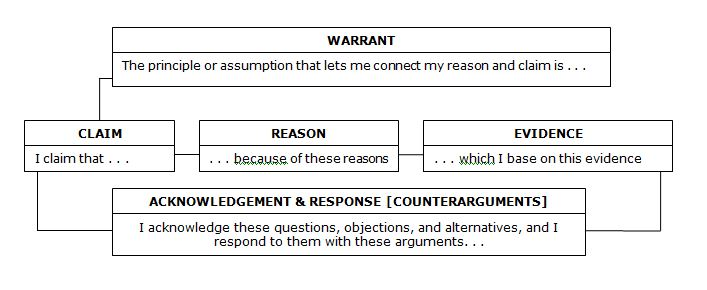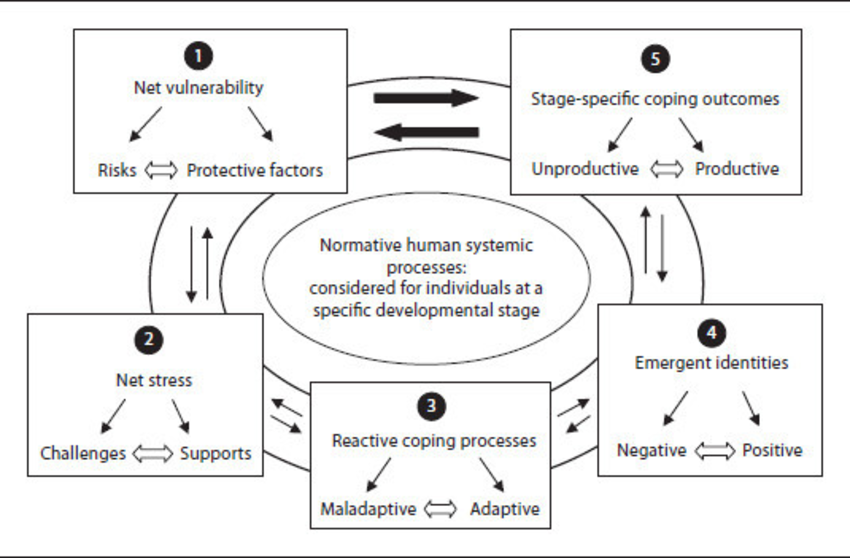2023-02-01
# Great Books: Modern Period
#IDS147 #literature #psychology #philosophy
# Identity Issues or ’the modern’ refined
In this module, we will work on the following learning outcomes:
- To analyze expressions of related concepts of ==the modern==— especially ==identity, absurdity, fragmentation, and alienation==—as they occur in a variety of texts and contexts
- To reflect on the value of the classics in illuminating the issues that impact on the world today.
To achieve these learning outcomes, we will
- study what ‘modernism’ means
- discuss and novel, Demian, in terms of how it expresses the modern condition/sensibility
- look for expressions of the modern condition/sensibility in our world
# The center of the modern condition
- In the novel Demian, the main character, Sinclair, utters these words which could very well be the perfect expression of the modern condition: “All I wanted to do was to try to live the life that was inside me, trying to get out. Why was that so hard?”
- With these words, Sinclair identifies the ==tensions of the modernist==, which have to do with the clash of the self with forces that impact on it.
- And what are these forces? Why, you name them! ^c0f6dd
- We have social expectations, nature, what people say about us, what people say we should do, events like political issues, national elections, and war.
- And, on top of all that, the self clashes with the self too! The ==unconscious==, the ==psyche==, is there.
- So, the modern condition is characterized by the struggle of ==Being or ‘be-ing’== as a process against all these external and internal forces.
- In other words, whereas the philosdpher, Rene Descarte, famously uttered the words, I think therefore I am, the modern condition might as well say, I am? What is that? All these forces that we struggle against have made it very difficult to figure out who we are and live the life that is inside us. ^69c3cc
- As you go through this module–no, through the whole class–bear in mind this struggle of be-ing. How do I live the life that is inside of me, trying to get out? OR, what’s my thing? And how will I know what it is?
Can you identify some forces that impact make it hard for a person to discover a sense of self? Write no more than 150 words.
For me, some forces that have been definitely getting in the way of being are societal expectations and self-imposed pressure — both of which go hand in hand. Nowadays, in a hyper-online world, we’re exposed to the highlights of everyone’ lives; unfortunately, this exacerbates my unhealthy tendency to compare myself to others. It leads me to working myself to the bone in order to “catch up”, which isn’t helpful at all. It gives me no time to discern whether or not a certain goal is good for me at all.
# More about modernism
- Modernism is not about a certain time period. Rather, it’s about ==a way of perceiving, a way of be-ing, a sensibility, a way of thinking about the self==, compared to other ways of perceiving and be-ing.
- Here are two poems that express different ways of perceiving the self, different ways of be-ing. On one hand, we have Romanticist John Keats and on the other hand, we have the Bard, William Shakespeare. Shakespeare lived two centuries before Keats; yet, his poem expresses a modernist sensibility.
# Keats’ poem to the stars

- In this poem, the persona (and the voice of the poem can be the poet or can be someone else) speaks of admiring the ==steadfastness== of a star… the forever that stars seem to symbolize.
- The quality of steadfastness, which the persona admires, is ==found in nature, outside the self.== The self, then, can, like nature, have this quality.
- As we read the poem, we also get the feeling that ==natural processes are to be admired and human beings, to reach the fullness of ourselves, should aspire to have the perfection of nature.== Reading Keats and you almost have the feeling that the human and nature should be one.
# Shakespeare’s Macebeth: Deathbed speech

- After everything he had achieved, Macbeth knows that he is about to die. If you’ve read the play, Macbeth did everything he could to secure power for himself and for his descendants but ==death is inevitable== and in these lines, he realizes that he has been defeated.
- In these lines, Shakespeare uses a favorite comparison, that is, the ==similarity between an individual human life and a character (a player) in a stage play==, who enters and exits the stage on cue.
# Comparison
- The contrast between Keats’s poem and Shakespeare’s illustrates some very important characteristics of the modernist sensibility.
- For one thing, Keats, because of is allusions to nature, give us the feeling of the ==immortality of the self.== Even in death, we are like nature so we continue somehow, along with stars, grass, rocks, fields, the sea.
- But with Shakespeare, Macbeth realizes that upon his death, he is, well, dead. His life is snuffed out like a candle, like an actor who has to leave the stage. With the modernist sensibility, ==life is rendered woefully inadequate== and it’s only, in Macbeth’s words, ‘an idiot’ who will refuse to accept that.
- But, what we learn from modernism, though, is ==despite knowing that life is finite, the process of truly be-ing itself seems to be what life is all about.==
# The power of the psyche
- Two important figures to modernism are the great psychoanalysts, Sigmund Freud and Carl Gustav Jung.
- When Freud wrote about the unconscious and Jung, his student, continued his work, it became ==impossible to think of the human being as ‘whole’.==
- If you notice, in Keats’s poem, the notion of steadfastness is accepted as a trait that people can aspire for. The conflict comes out of the ==persona wanting that trait but maybe not quite having it yet.==
- With Shakespeare, though, the conflict is in the very nature of selfhood. If tomorrow will come and we all die, then what for is ==carving a self==?
- With Keats, what is at stake are ==the qualities that the self can have.== With Shakespeare, what is at stake is ==the existence of the self.== In other words, with Shakespeare, ==the self is fractured, having a nature that is at war with itself.==
- Jung has pointed out that ==we are ’enigmas’ to ourselves.== Because we don’t know ourselves, we are in a state of conflict with ourselves. ^eb7f5b
- Jung has also pointed out that ==self-knowledge is usually just based on what we know of ourselves socially.== ^0ca92b
- Take myself as an example. Socially, I am female, married, middle-aged, teacher, Filipino, middle-class, educated, administrator, martial artist, crocheter, cat mom, cyclist, homemaker. All these social identifiers of who I am affect my decisions and my sense of self.
- But as Jung would say, these are all just on the surface. ==It’s what is happening in the psyche that matters.== Hence, I sometimes have strange and vivid dreams that have nothing to do with who I am socially. And this is why ==to the modernist sensibility, we all have cracks and fissures where ’true being’,== as Jung would say, come out.
- Jung has also argued that ==the problem with society is it only cares for what is external.== The psyche itself is ignored and this leads to many problems, such as mental health and behavioral issues. He has argued that ignoring the psyche will lead us all to very detrimental effects.
- To Jung, we have long forgotten to pay careful attention to the individual; ==sacrificing the individual for the collective.== Hence, modern society ignores the authentic responses of the individual, in favor of collective conditions. ^45816b
- This is why history is full of movements of collective acts (like war) but the individual may feel alienated from these collective acts. There is no such thing as a whole individual, just as there is no such thing as a whole society or culture.
- To read: Jung’s “Sources/The Undiscovered Self”.
# What is reality anyway?
^69ac07
- What we also learn from the work of psychoanalysts is that reality does not necessarily exist as an objective truth. Rather, ==the world to us is defined for us by how we see it.== And how we see the world and how we are in the world are also largely ==determined by the unconscious==, by the psyche that we know so little about.
- The fact that it’s difficult to put a finger on objective reality comes out in our ==languaging.== Many of the things we say, can, after all, be questioned grammatically. For example: the sky is blue, isn’t it? I am a girl, aren’t I? It can be very difficult for us to understand each other because ==we perceive reality in different ways.==
# Reading “Demian”
As you read it, ask yourself how the lives of Demian and Emile Sinclair seem to give expression to Jung’s ideas, particularly:
- how reality is created by our own perceptions as opposed to the perceptions of others
- why the journey to the self can be terrifying
- how collective action can actually both enrich and obliterate the self
Question: Do you think Demian and Sinclair had found true self-knowledge? Have you?
# Psychology of Personal Growth
#psychology #personaldevelopment
# The Power of Habit
- Habits are simple cue-routine-reward loops that save effort.
- MIT experiment: mice seeking chocolate in maze
- When they memorized the path, brain activity lessened
- Chunking: process of turning a sequence of actions into an automatic routine
- Habit loop
- Cue
- Routine
- Reward
- ==Habits are incredibly resilient.== Learning and maintaining habits lies in the basal ganglia, a small neurological structure embedded deep in the brain. Even if the rest of the brain is damaged, this can still function normally.
- Same can apply to bad habits; you may always be at the risk of relapsing
- MIT experiment: mice seeking chocolate in maze
- Habits stick because they create craving.
- Kicking a bad habit is hard because you develop a craving for the reward at the end of the habit loop.
- Anticipation is the neurological basis of craving, which explains why habits are so powerful.
- Craving works for good habits as well, E.G. exercise.
- ==Craving is what solidifies the habit==; cues and rewards alone are not enough.
- Companies try to create craving for their consumers too.
- Example application: Claude Hopkins, the man who popularized Pespodent toothpaste by creating the cool, minty feeling you get after brushing your teeth.
- To create a habit, substitute a routine for another and believe in the change.
- Golden rule for quitting any habit: don’t try to resist the craving, redirect it.
- Keep the same cues and rewards, but change the routine that occurs as a result of the craving.
- While habit-replacement is effective, it can be rendered null ==whenever stress occurs.== Old habits die hard, no matter how much time you take trying to kill them.
- Those who resist relapse and remain sober often rely on belief.
- Importance of spirituality and God in AA philosophy
- It’s not necessarily the religious component itself that helps people stay sober. ==Believing in God also helps the participants believe in the possibility of change for themselves, which makes them stronger in the face of stressful life events.==
- Golden rule for quitting any habit: don’t try to resist the craving, redirect it.
- Change can be achieved by focusing on keystone habits and achieving small wins.
- Paul O’Neill as CEO of Alcoa
- Workplace safety
- Habits exists in organizations, and changing an organization’s direction is a matter of changing its habits.
- Not all habits are created equal.
- Keystone habits: more important than other habits, because adhering to these create positive effects that spillover to other areas.
- Example keystone habit for individuals: keeping a meticulous food journal
- These habits work by providing ==small wins== – that is, early successes are fairly easy to attain.
- Developing a keystone habit helps you believe that improvement is possible in other spheres of life, too, which can trigger a cascade of positive change.
- Paul O’Neill as CEO of Alcoa
- Willpower is the most important keystone habit.
- Marshmallow experiment
- The ones who delayed gratification often ended up becoming more successful in life
- Willpower is actually like a muscle: it can tire.
- If you exhaust it by concentrating on a demanding task, you’ll have no willpower left after doing it.
- You can strengthen your willpower by engaging in habits that demand resolution (e.g. adhering to a strict diet). Like a willpower workout
- Other factors can impact willpower as well, such as people you interact with
- Starbucks LATTE method
- A lack of autonomy also adversely affects willpower.
- If people do something because they are ordered to rathen than by choice, their willpower muscle tires much quicker.
- Marshmallow experiment
- Organizational habits can be dangerous, but a crisis can change them.
- E.G. King’s Cross 1987 fire
- Crises offer a unique chance to reform organizational habits by providing a sense of emergency.
- Good leaders often actively prolong a sense of emergency or even exacerbate it.
- This is because it allows for various solutions to arise.
- Companies take advantage of habits in their marketing.
- DYK: filling up your cart with healthy items first makes you more likely to buy unhealthy items later
- When trying to sell anything new, companies will try their best to make it familiar.
- Movements are born from strong ties, peer pressure, and new habits.
- E.G. Rosa Parks and the civil rights movement
- She had Strong ties: concept from sociology; first-hand relationships with people across different sectors of community
- Weak ties: acquaintances rather than friends
- Weak ties, combined with strong ties, empower peer pressure.
- We bear the responsibility for changing our habits.
- Once we become aware of a harmful habit, it becomes our responsibility to address and change it.
# Good Writing
#writing
- Rubrics
- Grammar
- Style and Reference
- Organization
- Argumentation
- Integration of different disciplines
- Depth and nuance
- Argument/thesis
- Be clear with your thesis.
- What are the parts of your thesis?
- Move from one idea to the next, and tell it to your reader from the start.

- Introduction
- Start with…
- Hook: significance of problem/issue
- Gap: puzzle, question, lack
- Study: how you plan to study gap
- Important: a thesis statement
- Variations:
- Option 1
- Stasis: intellectual status quo
- Concession: right with status quo
- Destabilizing condition: imperfect
- Solution: how to address problem
- Option 2
- Case study: example
- Obstacle/surprise: broader concept
- Study: thinking differently on topic
- Option 3
- Solution: strong thesis
- Costs: arguments against solution
- Benefits: arguments for solution
- Option 1
- Start with…
- Workshop
# The Science of Habit Lecture
- Creating habits
- Habits
- Usually form unconsciously
- Starts with craving, then goes on automatic mode
- Parts: trigger, routine, reward
- Psychology and sociology
- brain wants to save effort
- what effort do we want
- society: serves practical function
- rhythm of life and movement
- Habits are really about identities: PVEST; Atomic Habits

- You are what you repeatedly do
- Habits
- Sustaining habits
- Habits are self-sustaining
- Triggered by…
- time of day
- feeling/thought
- people
- Cravings reinforce habits
- Example rewards
- Physical (e.g. endorphin - exercise)
- Cognitive (e.g. stimulation - reading)
- Emotional (e.g. happiness - talking)
- Changing habits
- Change your trigger (e.g. checking social media, eating unhealthy food)
- Change your reward (e.g. changing definition of success, talking to 3 friends)
Habits are immensely important. But we may not be attentive to the habits that we have. In this reflection, please write about a habit you would like to change–and how you plan to change it given what we’ve learned about trigger, routine, and reward.
Despite having a longstanding goal of losing weight, I’ve ended up gaining more than 15 pounds in the past few years. I can connect this to my tendency to overeat, especially during times of stress; sweet foods like chocolates are often the main culprits. One simple change I can do to address this is drink water first whenever I feel hungry. Another simple change I can do is to replace my usual sweets with healthier alternatives (e.g. switching out ice cream for greek yoghurt).